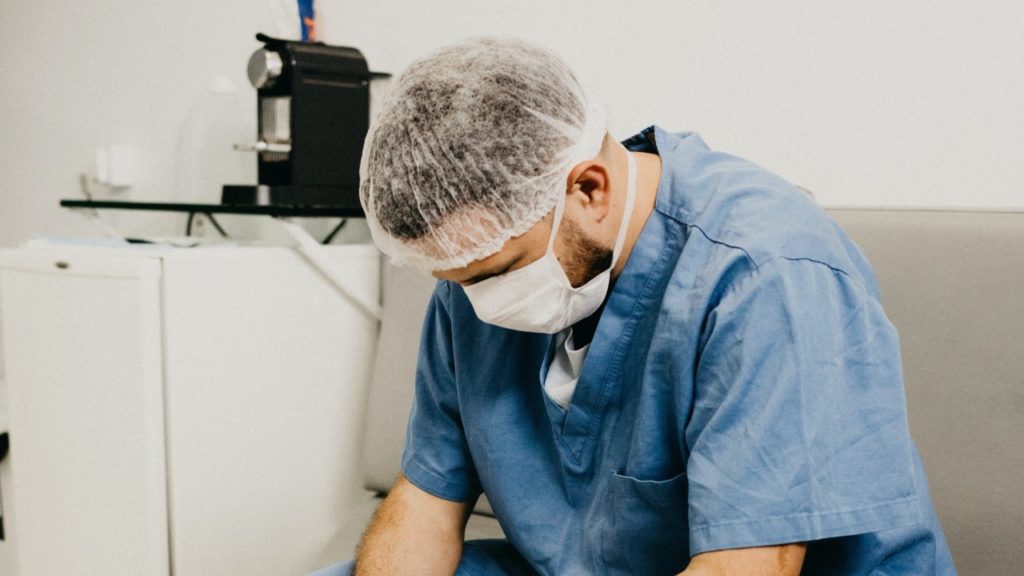All too often, my decisions don’t only affect me, but impact others as well. Sometimes the impact is small; perhaps I have the opportunity to make someone’s day a little better with a word of encouragement. Sometimes it’s large; I am able to influence someone’s career, relationship, or future. The theory of decision-making seems simple: When facing a difficult choice, do the thing that benefits the most people. But is that how we are supposed to act? Is it really that easy?
I recently listened to an episode of the Radiolab podcast called “Playing God“ that dealt with some difficult questions about responsibility. The episode features a New York Times reporter named Sheri Fink who was in Haiti with a U.S. disaster responder group after the earthquake in 2010.
Sheri relates the numerous casualties she saw and the patients lined up, row after row, waiting for treatment. The hospital she was at didn’t have enough resources; they were running out of oxygen tanks and diesel to run power generators crucial for surgery. She spoke to a 38-year-old patient whose family had died in the earthquake, a woman who had won the hospital staff’s hearts because she was so thankful for all they were doing for her.
This woman had chronic lung problems and was going to be weaned off the oxygen and sent to a Haitian facility to die because they didn’t have enough oxygen to go around. The nurse who made this decision without ever meeting the patient said, “[We] have to look at the greater good that we can provide with the limited resources that we have.”
“They were trying to save oxygen,” Sheri said. “She has a chronic problem that probably won’t get better, so that’s the theory of it. But the practice of it was quite different. She had absolutely no idea that they were about to do this. She had all this hope for her future.”
Following that woman as she was transported to a different hospital, Sheri witnessed another doctor improvise to help her, using diuretics to get fluid out of her lungs and finding one tank of oxygen that had a teeny bit left in it to help her breathe. He was able to extend her life. Even though Sheri then took a personal interest and helped the woman get to the U.S. for treatment, she ended up having a serious condition that resulted in her death soon after.
The decision to take the woman off oxygen was practical. But “the more you have to look someone in the eyes, the more it makes us try to figure out creative ways to avoid doing it,” Sheri commented.
Your choice
What do we do when we’re faced with a decision and there is no right answer? Hospitals have rules in place to figure out life and death situations like this, and there’s a reason for it; if you don’t systemize the process, there’s a risk of making unfair choices based on any number of things, including the patient’s wealth or likeability.
I’ve never had to decide whether someone dies or lives (thank the Maker). But I have had to make choices that affect other people. As a manager, I’ve had to decide who to hire and who to reject. My decisions are constantly affecting the people who work under me. As a writer, the things I publish have the power to influence people. As a friend, decisions on how I react affect my relationships.
I’ve noticed it’s much easier making difficult decisions if I focus on the goal instead of the people involved. Someone’s being difficult at work and making co-workers’ lives miserable? Fire him. A friend is being a bad influence on you? Stop hanging out with her. Your boyfriend is becoming annoying? Dump him. You have the opportunity to save the lives of a busload of people or one toddler (obviously, you’re Spider-Man in this situation)? Save the busload.
Just don’t look the kid in the eyes before you turn away.
The theory is there, but the practice is something else. The above decisions take the relationship out of the equation. When we are put in a position to play a “God” role, we can’t fill those shoes; no one can. All we can do is the best with what is given to us, and as Christians, relationships need to be important. We need to look people in the eyes and remind ourselves that they matter. We are to “always seek to do good to one another and to everyone” (1 Thessalonians 5:15). Even with the difficult decisions, with the choices that can’t be made but have to be, we still rely on God’s wisdom to guide us and to get us through the consequences afterwards.
Copyright 2017 Allison Barron. All rights reserved.












